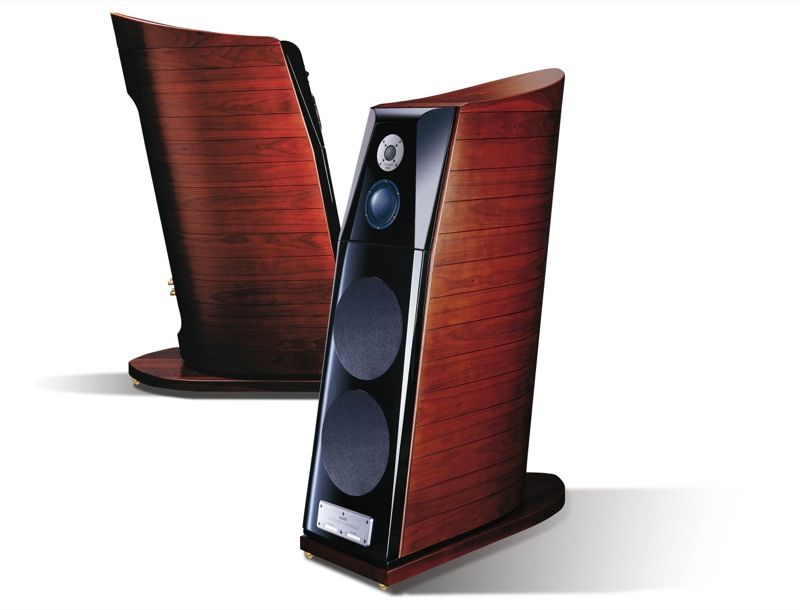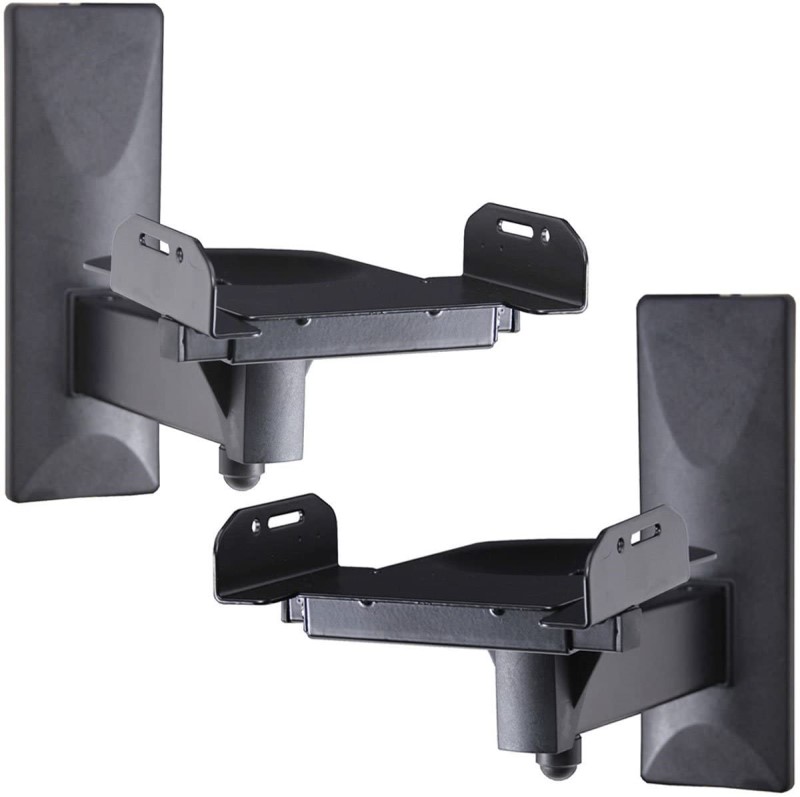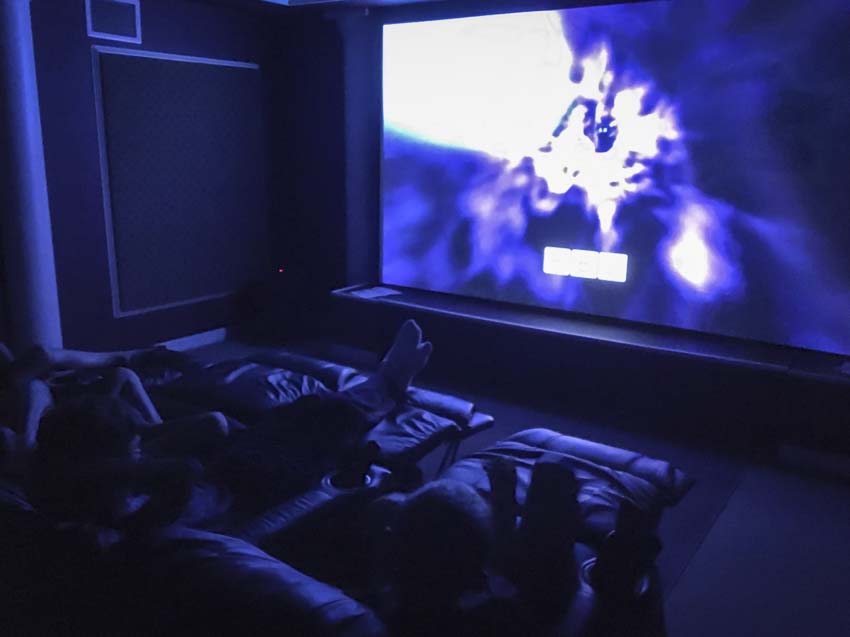Six Things I Wish I Knew Before Buying My First Home Theater Speakers
You’ve set a budget and are ready to start shopping for home theater speakers. After decades of experience in the home theater and AV world, there are a few pieces of advice that I wish newbie me had known. Shopping for speakers can be the most exciting and fun thing you do, or so intimidating as to cause panic attacks. It doesn’t have to be. There are lots of resources out there (not the least of which is us) to help. But if I had to do it all over again, I’d do a few things differently. So, here are six things I wish I knew before buying my first home theater speakers.
Bigger Isn’t Better

The communal wisdom is that bigger speakers are, by definition, better. Therefore, if you can afford tower speakers, you should get them. There are real reasons that someone might want towers, but for most rooms, bookshelf speakers are just fine. You aren’t sitting far enough away that the extra output of a tower speaker is needed. Plus, you can save some money by buying bookshelves. In my own home theater, I’ve recently “downgraded” from towers to bookshelves. Why? The bookshelf speakers were easier to place.
Don’t Forget the Stands/Mounts/Wires

There were a lot of mistakes I made when buying my first home theater speakers, one big one that I wish I’d known was how to budget better. When shopping for bookshelf speakers, remember that you need to budget for all the other stuff. If you already have a location, like to the sides of your display on top of your TV stand, then maybe you don’t need dedicated stands for your speakers. But they still need to be wired. While speaker wire doesn’t have to be expensive, it doesn’t cost nothing. Plus, you might want to hide them. That could also mean a bit more capital outlay.
For all the other speakers, don’t assume that they will come with a stand or wall or ceiling mount. The “mounts” included with most satellite speakers are usually little more than keyhole mounts. Don’t blow your budget and then figure out you can’t wire them or place them where you want in your room.
Learn to Read Reviews
I don’t know anyone that walks into a store and walks out a few minutes later with speakers. We all do our research online. It is easy to get overly excited about a set of speakers because of a glowing review. Likewise, it is fairly easy to discount a speaker because someone had a bad experience.
The key is to know how to read the reviews. For professional reviews, examine not just the review of the speaker you want, but the other reviews done by the same reviewer. Are they the type that never met a speaker they didn’t like? More importantly, what does their room look like? If you can find a reviewer with a similar room to your own, you can extrapolate that their experiences might be closer to yours.
And Amazon reviews….shudder. These have to be read very carefully. Is it the person’s first “real” pair of speakers? Nothing they say can be trusted because they have no frame of reference. Did they give a low score because of shipping problems? Damage during shipping? Bigger/smaller than they expected? Different color? Those have nothing to do with the speaker’s performance. Always view Amazon reviews with a great deal of skepticism.
Performance Over Aesthetics
I am not ashamed to admit that I still judge speakers based on how they look. I’d prefer a better-looking speaker over one that isn’t as aesthetically pleasing. If your speakers will live in a shared-use area, this is a real concern. I wish I had known to take looks less into account when buying my first home theater speakers. While it wasn’t my deciding factor, it was given more weight than it should.
For many of us, our speakers are either in a dark room or are placed as out of sight as possible. At this point, who cares what the finish looks like? Get the cheaper vinyl wrap over the glossy finish. Plus, the more expensive glossy finish reflects more light. Believe it or not, you won’t want that when you turn the lights off and are trying to enjoy your movie. Having the image reflected off your front three speakers might make you regret that glossy finish.
Know Which Corners to Cut
The temptation when buying speakers is to match all of them. If you have one brand for your fronts, you should also have the same for your surrounds. And if you are going to include overhead Atmos speakers, you should have the same brand, right?
Not really.
While timbre matching your speakers is important, it isn’t as imperative as you might think. The surround speakers can be a different brand, but similarly voiced, and you probably won’t notice a difference. The Atmos speakers? Dolby literally expected you to use existing in-ceiling speakers. You can save a ton of cash by mixing and matching speakers in your theater. This frees up more of your budget for the front three speakers which are the most important.
Audition, Audition, Audition

Lastly, I bought my first “real” speaker system from an online-only company. I had done my research so I was confident that I was buying a good product at a great price. You could do the same and probably sleep well at night.
For a while.
In the end, you’ll end up like me. Wondering if you could have found something better for similar money. My current advice is to order from one of the online companies that offer free in-house auditions with free shipping both ways (SVS and Aperion Audio come to mind). I also suggest you visit all your local (and not that local if you are willing to drive) stores and listen to everything you can. Find a speaker you really like? See if they’ll let you take a pair home to audition. If they won’t, see what their return policy is (make sure you inquire about “re-stocking” fees) and maybe buy them temporarily.
Conclusion
In-home auditions are the only way to be sure that you will be pleased with your purchase. If you can narrow it down to a couple of local speakers and one or two online speakers, you can get them all in at the same time and compare them. The charge on your card will motivate you to make a decision quickly and get those refunds.
These six tips aren’t a definitive list, but they are the things I wish I knew before I bought my first home theater speakers. In the end, if you follow these tips, you should end up buying speakers that will serve you well for years. And you’ll have the peace of mind that you did everything you could to maximize your money.


